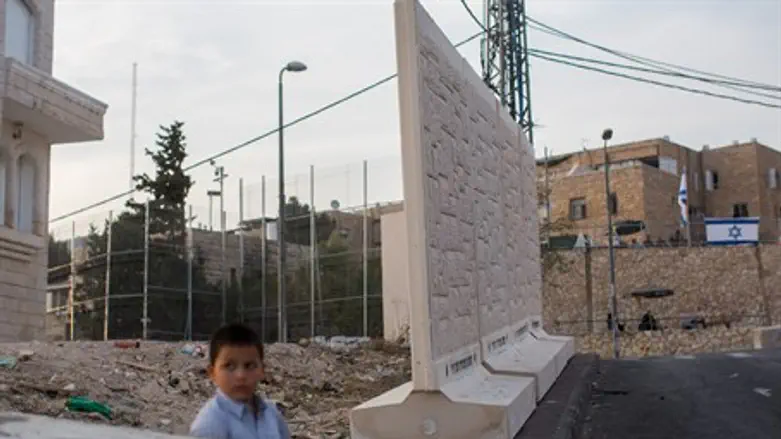
A new poll has found that an overwhelming majority of Israeli Jews, 61%, think that the Israeli capital of Jerusalem is currently divided, even though the city was liberated in the 1967 Six Day War and politicians continue to speak of the united capital.
The figure regarding the 3,000-year-old capital of the Jewish people arose from the monthly peace index of Tel Aviv University and the Israeli Democracy Institute, as reported by Channel 2 on Sunday. It indicates a perception that Israel has let its capital slip out of its control.
In a worrying sign, the index noted that the number of those viewing Jerusalem as divided has inflated rapidly in just a short number of years. Back in 1999, only 44% of Israeli Jews said the capital was divided.
Voters for leftist parties were far more inclined to view Jerusalem as divided, with 88.5% of Zionist Union voters and 85% of Meretz voters saying the city is not united. Likud voters were split roughly 50-50 on the matter, while only 13% of Shas supporters said Jerusalem is divided. Meanwhile 47% of Arab citizens of Israel said the city is split.
The finding comes even as politicians continue to talk about united Jerusalem. Late last month Jewish Home chairperson Naftali Bennett in his role as Education Minister themed the next school year on the "unity of Jerusalem" to mark 50 years since the city's liberation. Bennett was Jerusalem Affairs Minister in the last coalition government.
Jerusalem Councilman Arieh King has long warned that the government has been covertly dividing the city in practice, noting on the total lack of law enforcement in Arab majority neighborhoods allowing rampant illegal construction, coupled with a brutal freeze on Jewish construction over the 1949 Armistice lines. As a result Jerusalem leads the country in negative migration of Jews.
In a call to action, King has frequently urged the government to increase enforcement in the Arab neighborhoods and thereby implement Israel's sovereignty on all parts of the capital city.
Arabs more concerned over terror
The current Arab terror wave may also be a factor in the results of the poll, as the terror indicates the sense of lawlessness in Arab neighborhoods of the city that have been largely given a free hand by police.
The policy of "containment" was on display in January as hundreds of Hamas terrorists fired automatic weapons in the air during a terror rally in the northeastern Shuafat neighborhood. Police in response to footage from the event said those entering and exiting the neighborhood have to pass through a security check, but did not conduct raids of the area. Arab residents have been documented freely crossing over the security barrier separating the neighborhood from the rest of the city.
Sunday's poll also addressed the Arab terror wave, and found that 66% of the Israeli Jewish public and 73% of the Arab Israeli public are concerned that they or someone close to them may be hurt in the terror wave.
The greater concerns among Arab Israelis may indicate how they have in some rare cases been mistakenly targeted by Arab terrorists, or it may possibly indicate concerns that those close to them will be shot dead while conducting a terror attack, as numerous Arab citizens have launched lethal attacks during the current wave of terror.
The poll was conducted by Prof. Efraim Yaar of Tel Aviv University and Prof. Tamar Herman of the Israeli Democracy Institute, and was conducted from February 28 to March 1 with 600 participants from a sample range of backgrounds.